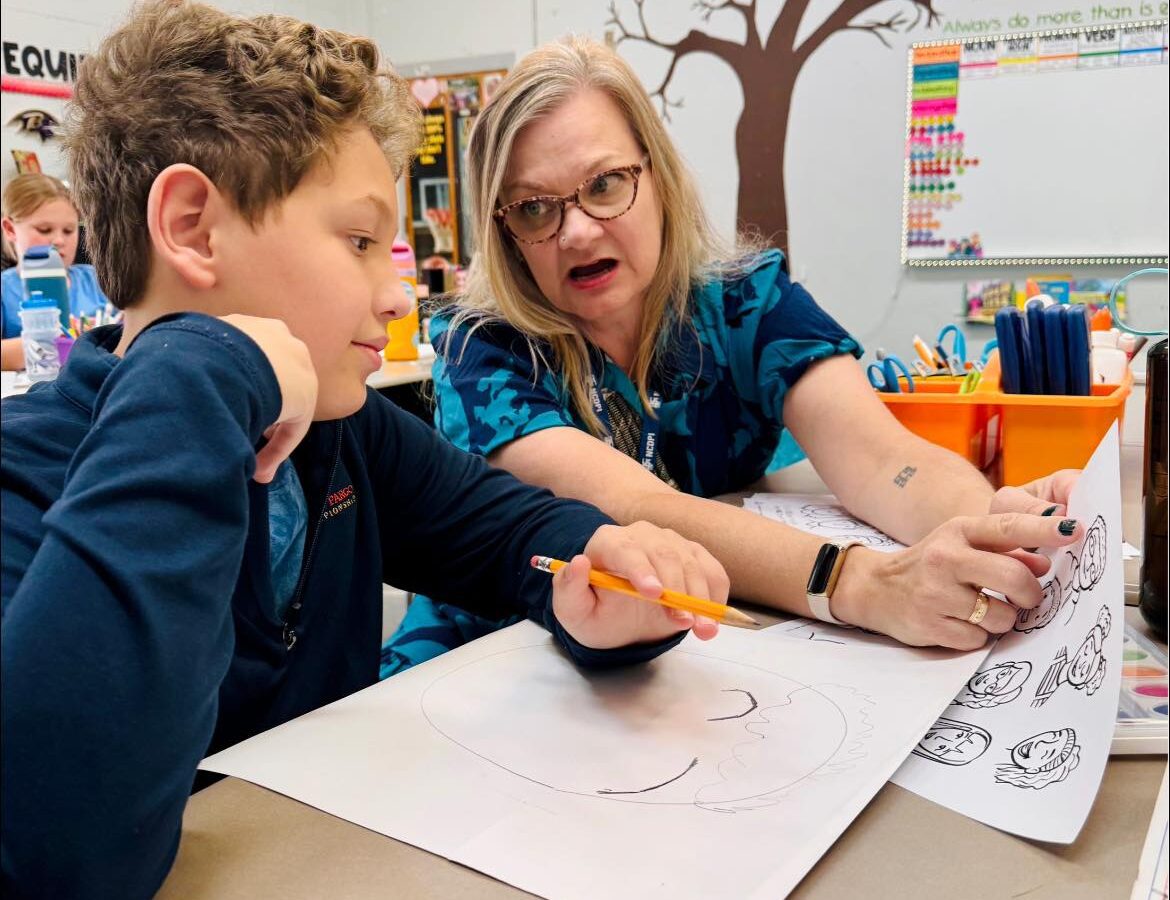
Editor’s Note: Part of this article was previously published by The Thomas B. Fordham Institute as an entry in Fordham’s 2025 Wonkathon, which asked contributors to answer this question: “What needs to happen next — at the state, district, and school levels — for the science of reading revolution to fulfill its promise and ensure that far more children learn to read well?”
To ensure science of reading laws succeed, states and districts need ongoing support and funding from their legislature and SEA.
This commitment must remain a visible priority for students and educators.
Once you have that investment, there are three essential next steps to consider
North Carolina stands out nationally with all 18 Fundamental Principles of Early Literacy firmly in place to support educators and student learning. The foundation has been laid for a robust, sustainable implementation structure. While the statewide rollout of LETRS professional development was both powerful and necessary, the next phase requires ongoing coaching aligned to data and high-quality instructional materials (HQIM) to deepen and sustain these early gains.
1. Actionable planning with a learners mindset
Continuous improvement happens within professional communities of educators who collaborate to highlight effective strategies, identify gaps, and act on data. True improvement requires more than conversation; it demands structured, transparent processes for follow-through and accountability. In-action coaching, modeling, and courageous conversations about nonnegotiables lead to measurable change.
Reflective question
Does your system’s culture include processes that both celebrate progress and recognize areas requiring actionable planning, monitoring, and support?
2. Maximizing effective frameworks of support
Sustainable implementation also depends on intentional effort, consistent data review, and clearly defined next steps.
The NC Early Literacy Specialist (ELS) initiative provides a prime example. Originally designed to support all districts equally, the model has evolved into an equitable, data-driven approach with specialists now providing targeted, school-level support based on student performance trends. In many districts, ELSs spend their time in focus schools, assisting new principals, coaches, or schools with the greatest literacy needs.
Just as teachers cycle through review, reteach, assess, and adjust, leaders must adopt similar cycles for adult learning. Progress monitoring every 10-20 days ensures timely adjustments and meaningful improvement.
Reflective question
Does your system embrace a mindset that everyone, from the teacher to the superintendent, benefits from coaching and an accountability partner to translate data into action?
3. Every component every day in every grade
As districts continue to analyze literacy outcomes, one core principle remains: every classroom, every grade, every day must address all five components of literacy — phonemic awareness, phonics, fluency, vocabulary, and comprehension — along with oral reading fluency and writing.
Effective instruction begins with standards-aligned, high-quality instructional materials rather than isolated pacing guides. Teachers can teach multiple skills through a single text, revisiting foundational concepts daily to strengthen retention.
Timely progress monitoring (every 10-20 days) should be a systemic expectation. Assigning responsibility for tracking ORF and MAZE results helps ensure rapid intervention and clarity on next steps. Early identification of foundational skill gaps allows for meaningful individual reading plans that involve families, tutors, and community partners.
Waiting until mid-year in kindergarten to act risks widening gaps that become increasingly difficult to close. Any child leaving kindergarten below 90% readiness remains at long-term risk without targeted, timely intervention.
Reflective question
Does your system’s HQIM require explicit instruction in all five components, oral reading, and writing across every grade, every day? If not, what are your next steps?
How to react to state data
Examining data is essential for highlighting best practices, as well as driving continuous improvement.
In North Carolina, recent state-level literacy data revealed a slight decrease in the Grade 3 EOG reading assessment.
Next steps?
The Office of Early Learning (OEL) is awaiting final state kindergarten data and national Amplify results to further analyze trends, identify bright spots, and pinpoint areas for improvement compared to national benchmarks.
OEL is also helping interested districts continue to expand the use of DIBELS 8 assessments into Grades 4 and 5 for another year.
In the meantime, OEL Regional Consultants and Early Literacy Specialists are engaging with local data through structured data protocols, continuing to emphasize the importance of oral reading fluency (ORF). This critical skill, often underemphasized, has a strong correlation with comprehension and overall EOG performance. Ensuring students achieve automaticity in foundational and core skills remains essential for long-term gains in reading proficiency.
To deepen districts and schools’ understanding of effective language comprehension instruction, the Office of Early Learning (OEL) continues to leverage key resources such as The Reading Comprehension Blueprint Activity Book by Nancy Hennessy and Julia Salamone. This resource reinforces the practical application of the science of reading in classroom practice.
With the ongoing guidance of Early Learning Specialists in each district, educators are intentionally connecting their LETRS knowledge to the North Carolina Standard Course of Study (NCSCOS) and to locally adopted high-quality instructional materials (HQIM).
Establishing a seamless connection between professional learning, standards, curriculum, and classroom implementation is essential to sustaining progress toward improved literacy outcomes.
Continuous improvement requires national support and local nuance
North Carolina continues to benefit from a strong partnership with ExcelinEd, whose commitment to advancing literacy has played a critical role in shaping the state’s success. Their guidance and support were instrumental in the development of North Carolina’s Excellent Public Schools Act of 2021, a comprehensive literacy law designed to ensure all students receive evidence-based reading instruction grounded in the Science of Reading.
ExcelinEd’s engagement extends well beyond policy development. The organization continues to collaborate with the N.C. Department of Public Instruction by providing feedback on the state’s English Language Arts standards, supporting professional learning through the Foundations of Literacy Coaching Modules, and providing scholarships for participation in the Early Literacy Network. Their ongoing communication with the agency, the State Board of Education, and other stakeholders has strengthened North Carolina’s capacity for sustainable literacy improvement.
Casey Taylor, senior policy director of Literacy at ExcelinEd, has been a vital thought partner in this work — both in spotlighting North Carolina’s progress and in helping identify strategies for continuous improvement. From her national vantage point, Taylor notes that states demonstrating strong alignment with the 18 Fundamental Principles of Early Literacy tend to see the greatest gains on the National Assessment of Educational Progress (NAEP). States such as Louisiana, Alabama, Indiana, Mississippi, and Tennessee are leading this movement, each implementing comprehensive and coherent literacy policies that are reshaping instructional systems and culture statewide.
Among these states, Alabama stands out for its unique systemic approach. While every school is supported by a literacy coach, ensuring that teachers receive practice-focused guidance at the classroom level, they have also provided regional administrative coaches for principals of the schools with the highest need, who influence the broader impact at the school level. It is important to understand that one teacher impacts one classroom as part of a larger system, while a principal shapes overall school level expectations and learning priorities for both teachers and students throughout the larger system. Both roles require coaching and support to sustain meaningful literacy transformation.
A North Carolina story
One question that continues to surface locally is whether Hurricane Helene had a measurable impact on statewide end-of-grade literacy outcomes. Importantly, in many western districts, the storm sparked a heightened sense of collaboration, urgency, and determination, leading to overall positive impacts despite the challenges.
In Watauga County Schools, the district lost approximately 17 instructional days, with some schools missing additional hours due to displacement and transportation adjustments. Yet, rather than succumbing to the setback, the district focused on recovering lost time and ensuring every student’s opportunity to learn was maximized.
“This response was rooted in a renewed sense of urgency to support student learning and growth,” said Brian Bettis, district director of elementary education. “Our educators and community developed an intentional, focused plan to do everything within their control to give back what had been taken from our students — time.”
Last year, Watauga County Schools adopted Core Knowledge Language Arts (CKLA) as its new HQIM to complement its existing Letterland program. This strategic and timely adoption allowed for aligned professional development, robust professional learning communities (PLCs), and consistent instructional support across the district, key factors in their recovery following Hurricane Helene.
Watauga County Schools demonstrated notable growth among its youngest learners, with kindergarten students showing a 40% increase in the number of students scoring at or above benchmark from the beginning to the end of the year, as measured by mCLASS composite scores. Third grade performance also remained strong, with 67% of students scoring at or above benchmark on mCLASS assessments, even as the statewide average showed a slight decrease. Early 2025-26 beginning-of-year data are consistent with previous years, reinforcing this positive trajectory. Current results indicate that 67% of third grade students scored at or above benchmark on early literacy measures — an increase of seven percentage points compared to the previous two years.
Looking ahead, Watauga will continue to emphasize the power of maximizing instructional minutes, reinforcing urgency and fidelity in progress monitoring and oral reading fluency practices.
This district was able to maintain strong K-3 performance even through adversity.
Stay the course to turn the ship
Every great voyage faces storms, detours, and moments of calm. But North Carolina’s educators are not adrift with a 2% dip.
Effective implementation takes time, commitment, and hard work.
For science of reading laws to succeed, we need to figure out how to best support educators. They need to both feel like they are not alone and believe the journey will be worth it.
Dear North Carolina educators,
Some days, you will feel like you have a firm hold on the helm, confidently navigating calm waters after conquering the storm. Other days, it may feel like all you have is a Q-tip in hand trying to change the course of the entire vessel! Either way, keep pressing forward. Lean into your crew. You are not alone, and the journey will be worth it. Keep an eye out for the beautiful horizon that peeks through the clouds from time to time and stay the course! Keep turning the ship!
— Amy Rhyne
Through the collective effort of educators, leaders, and community members, it is resilient local systems that will translate challenge into opportunity — building capacity, strengthening systems, and sustaining statewide momentum in early literacy improvement.
Recommended reading



